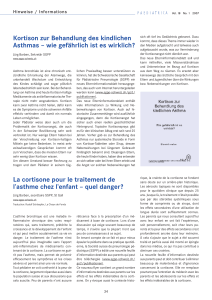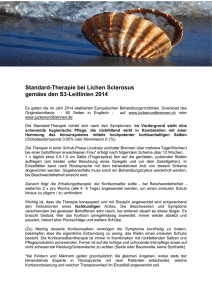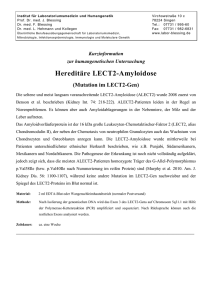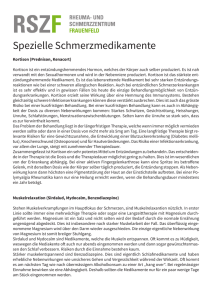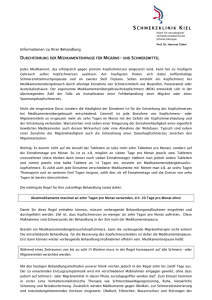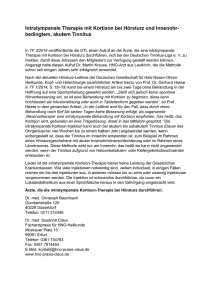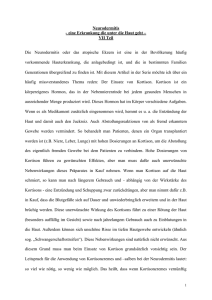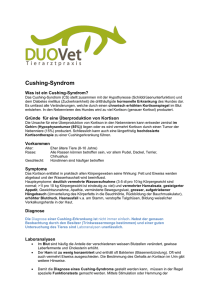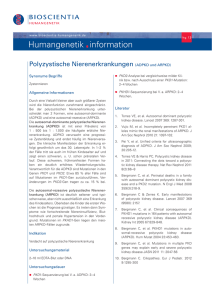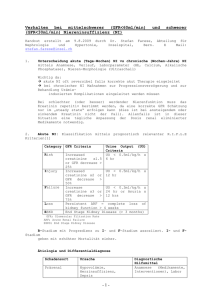Paper of the month, Dezember 2016
Werbung
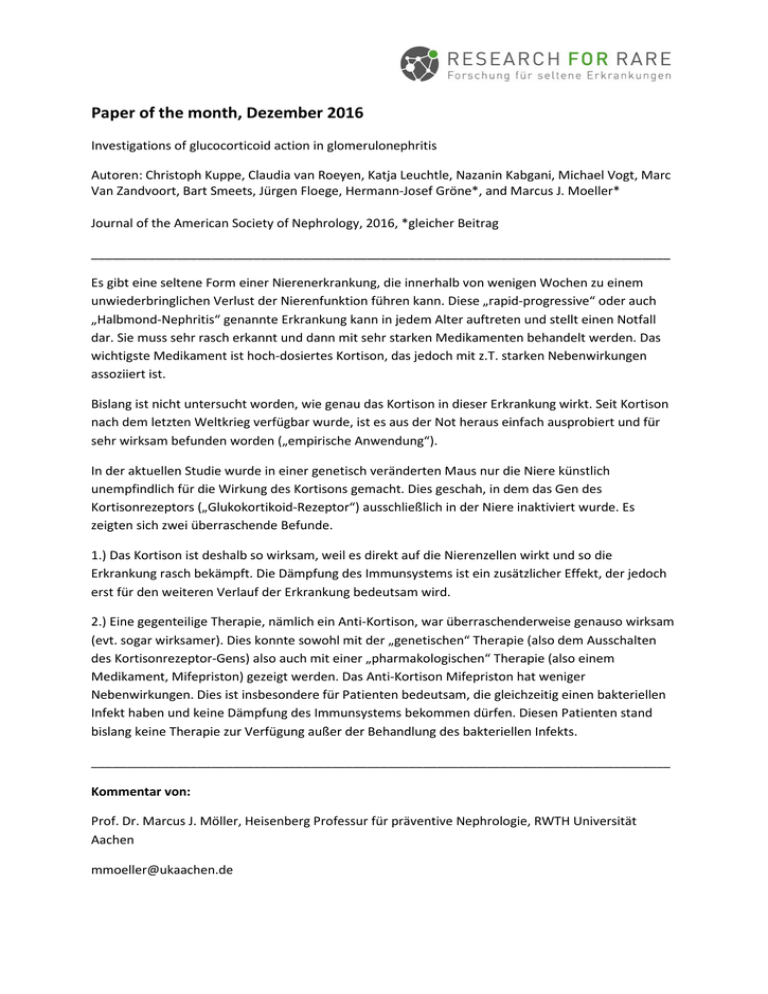
Paper of the month, Dezember 2016 Investigations of glucocorticoid action in glomerulonephritis Autoren: Christoph Kuppe, Claudia van Roeyen, Katja Leuchtle, Nazanin Kabgani, Michael Vogt, Marc Van Zandvoort, Bart Smeets, Jürgen Floege, Hermann-Josef Gröne*, and Marcus J. Moeller* Journal of the American Society of Nephrology, 2016, *gleicher Beitrag __________________________________________________________________________________ Es gibt eine seltene Form einer Nierenerkrankung, die innerhalb von wenigen Wochen zu einem unwiederbringlichen Verlust der Nierenfunktion führen kann. Diese „rapid-progressive“ oder auch „Halbmond-Nephritis“ genannte Erkrankung kann in jedem Alter auftreten und stellt einen Notfall dar. Sie muss sehr rasch erkannt und dann mit sehr starken Medikamenten behandelt werden. Das wichtigste Medikament ist hoch-dosiertes Kortison, das jedoch mit z.T. starken Nebenwirkungen assoziiert ist. Bislang ist nicht untersucht worden, wie genau das Kortison in dieser Erkrankung wirkt. Seit Kortison nach dem letzten Weltkrieg verfügbar wurde, ist es aus der Not heraus einfach ausprobiert und für sehr wirksam befunden worden („empirische Anwendung“). In der aktuellen Studie wurde in einer genetisch veränderten Maus nur die Niere künstlich unempfindlich für die Wirkung des Kortisons gemacht. Dies geschah, in dem das Gen des Kortisonrezeptors („Glukokortikoid-Rezeptor“) ausschließlich in der Niere inaktiviert wurde. Es zeigten sich zwei überraschende Befunde. 1.) Das Kortison ist deshalb so wirksam, weil es direkt auf die Nierenzellen wirkt und so die Erkrankung rasch bekämpft. Die Dämpfung des Immunsystems ist ein zusätzlicher Effekt, der jedoch erst für den weiteren Verlauf der Erkrankung bedeutsam wird. 2.) Eine gegenteilige Therapie, nämlich ein Anti-Kortison, war überraschenderweise genauso wirksam (evt. sogar wirksamer). Dies konnte sowohl mit der „genetischen“ Therapie (also dem Ausschalten des Kortisonrezeptor-Gens) also auch mit einer „pharmakologischen“ Therapie (also einem Medikament, Mifepriston) gezeigt werden. Das Anti-Kortison Mifepriston hat weniger Nebenwirkungen. Dies ist insbesondere für Patienten bedeutsam, die gleichzeitig einen bakteriellen Infekt haben und keine Dämpfung des Immunsystems bekommen dürfen. Diesen Patienten stand bislang keine Therapie zur Verfügung außer der Behandlung des bakteriellen Infekts. __________________________________________________________________________________ Kommentar von: Prof. Dr. Marcus J. Möller, Heisenberg Professur für präventive Nephrologie, RWTH Universität Aachen [email protected] Paper of the month, December 2016 Investigations of glucocorticoid action in glomerulonephritis Autoren: Christoph Kuppe, Claudia van Roeyen, Katja Leuchtle, Nazanin Kabgani, Michael Vogt, Marc Van Zandvoort, Bart Smeets, Jürgen Floege, Hermann-Josef Gröne*, and Marcus J. Moeller* Journal of the American Society of Nephrology, 2016, *contributed equally __________________________________________________________________________________ There is a rare disease entity of the kidney, which can result in irreversible loss of renal function within only a few weeks. These so called rapidly progressive or crescentic nephrites can occur out of the blue at any age and they represent a medical emergency. They must be diagnosed as fast as possible and need immediate treatment with strong medication. In this context, the most important medicine is high-dose cortisone (glucocorticoids), which are associated with significant side effects. So far, the exact mechanism of action of cortisone was unclear and it was generally believed that dampening of the immune system was the most relevant mechanism of action. Since cortisone became available after the last world war, it was simply used empirically and found to be the most effective medication. The present study set out to clarify the mechanism of action of cortisone in this rare disease. For this purpose, specifically the kidneys of a mouse were made insensitive for the action of cortisone. This was achieved by inactivating the gene for the cortisone receptor (glucocorticoid receptor) only in the kidneys (using the cre/lox technology). Two surprising observations were made: 1. Cortisone acts directly on the kidney cells and this explains its rapid and highly effective therapeutic effects. The dampening of the immune system is an additional effect, which is more important in the later course of the disease. 2. Unexpectedly, the opposite treatment, i.e. using anti-cortisone to inhibit the cortisone receptor, is as effective (and potentially even more effective). This could be confirmed by genetic inhibition (i.e. inactivating the gene in the kidney) as well as by pharmacological inhibition using the ‘anti-cortisone’ mifepristone. Mifepristone has fewer side effects. This is especially relevant for those patients who suffer from bacterial infections as trigger of the kidney disease. These patients could not be treated with cortisone. The present study has identified an unexpected therapeutic option of these patients. __________________________________________________________________________________ Comment by: Prof. Dr. Marcus J. Möller, Heisenberg professorship for preventive nephrology, RWTH Universität Aachen, Germany [email protected]
